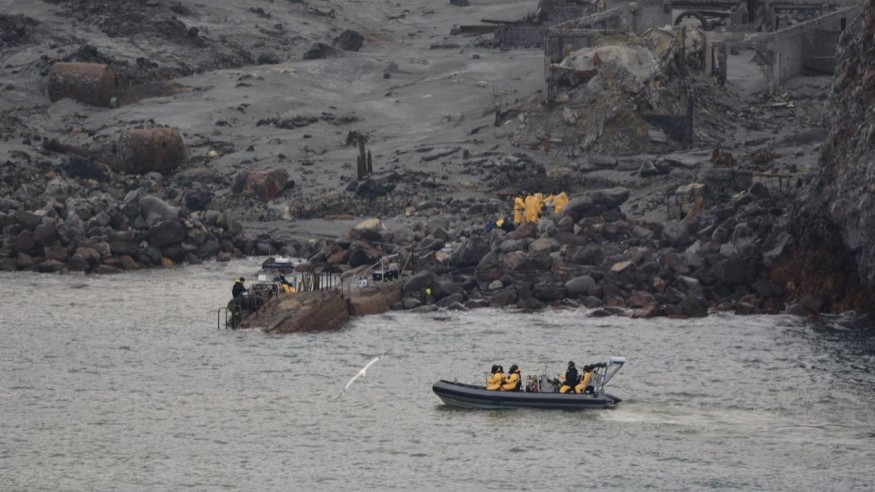
Six bodies were successfully recovered through the rescue mission conducted on Friday, New Zealand military confirmed.
As promised, six soldiers equipped with heat-resistant suits and breathing apparatus were deployed to the White Island area at around eight in the morning through a helicopter. All of them are bomb disposal specialists and are backed up with medical personnel and communication staff, who remained at the police boat during the mission. A helicopter also hovered above the island to provide support.
Through a press conference, Colonel Rian McKinstry, a senior defense official who was part of the special team, said that the operation was a pain due to the exhausting heat.
The deployed team also has to return at some point for rehydration, McKinstry explained, while showing an image of two soldiers in yellow suits traversing the ash-filled island.
To protect themselves from the heat, the soldiers have to wear a three-layered suit which consists of military undergarments, a cuff and ankle-locked fire-retardant suits, and a raincoat for the outer layer. On top of that, the island temperature was around 30 degrees and it continued to rise as the operation proceeded.
The bodies were brought to Auckland through aerial transport to undergo autopsy and identification. The family of the victims was also expected to retrieve the bodies in the same area.
A few hours before the mission started, a crowd consisting of the families of the victims, members of local communities, senior New Zealand police officers, and an Australia diplomat, gathered near the island for a prayer session for the success of the mission.
The mission is still incomplete
However, despite the maximum effort, the job was still unfinished. Two bodies remain unrecovered, with one of them abandoned in the water because of worsening weather conditions, said police commissioner Mike Bush.
Col. McKinstry promised the families of those two victims that the New Zealand military force will continue to work until the bodies were recovered. The next recovery mission will happen on Saturday.
Prime Minister Jacinda Ardern, who previously thanked the private individuals who ignored the threat to rescue stranded victims a few minutes after the eruption, also praised the soldiers for their courage and hard work. She likewise expressed her sympathy to all of the victims and their families.
A senior Ngati Awa local, Joshua Kauta, had told The Guardian in an interview that the success of recovering some of the bodies f the victims gave him some peace of mind despite the scary risks from the unpredictable volcano.
According to the local geozard agency, GNS, the volcanic activity on the island was still high but it has already slightly decreased overnight, which made the rescue mission just a little bit safer.
No criminal charge?
Before the eruption on Monday, GNS already raised the alert level on Whakaari to Level 2 due to the increasing volcanic activity. Despite that, the tours scheduled on the island, including a cruise line which has at least 35 passengers, proceeded, and it raised questions among the victims' families.
Prime Minister Ardern previously hinted at a possibility of a police investigation against the operators on the island. New Zealand Deputy Commissioner John Tims also said the same, but he immediately retracted the statement.
A law expert said that the accident compensation program, where the government will cover for all the medical expenses of the victims in exchange for absolving the charges, would render the victims unable to file a case. However, individual members from tourist companies can still be sentenced, if negligence on their part can be proven.
© 2025 NatureWorldNews.com All rights reserved. Do not reproduce without permission.





